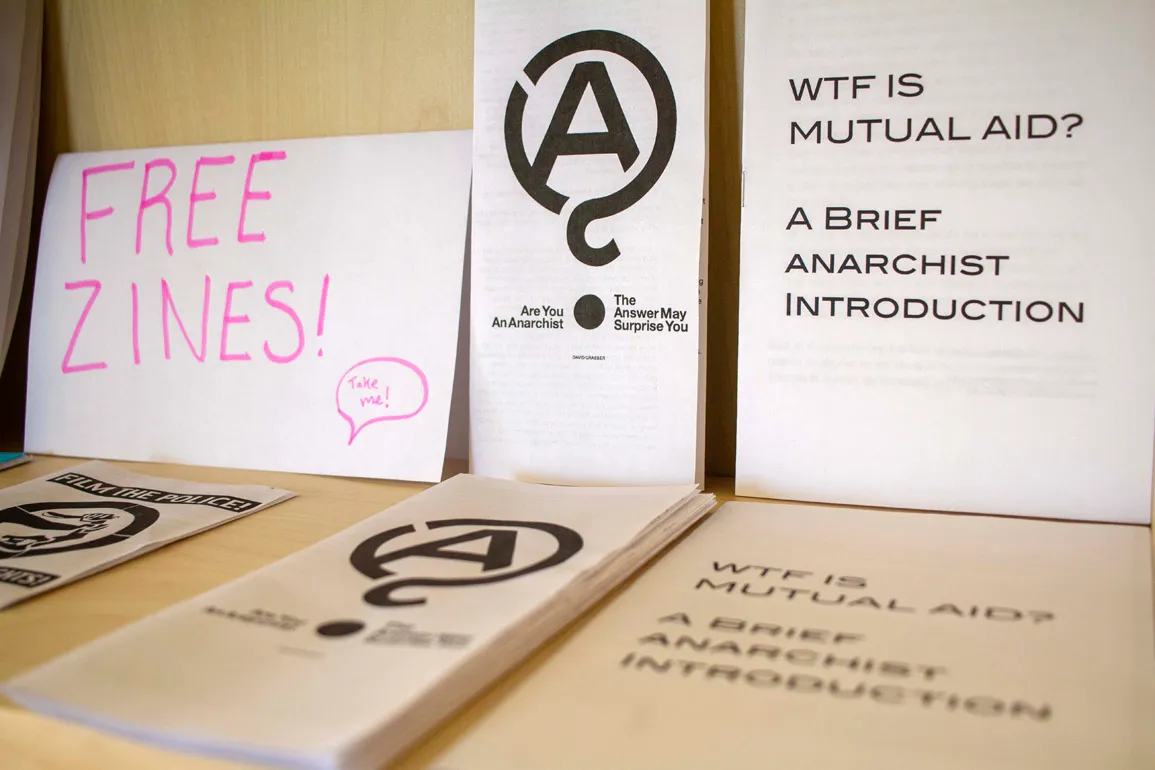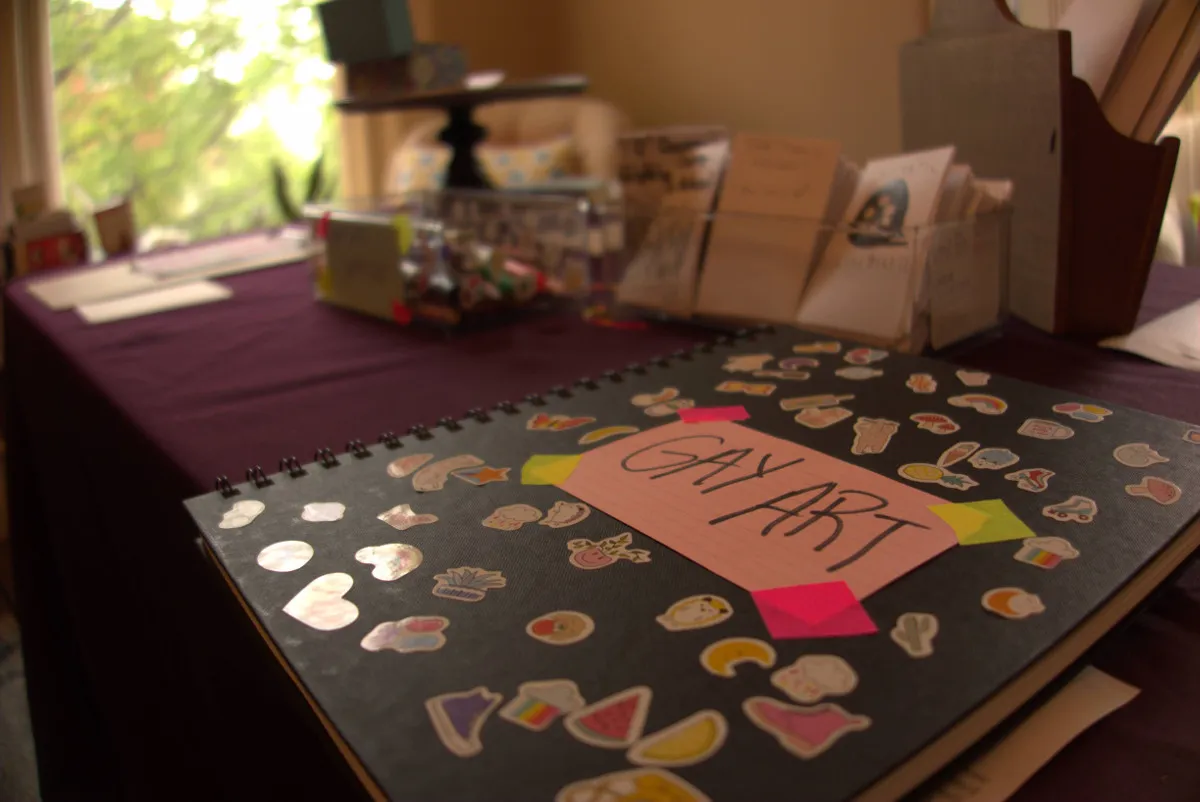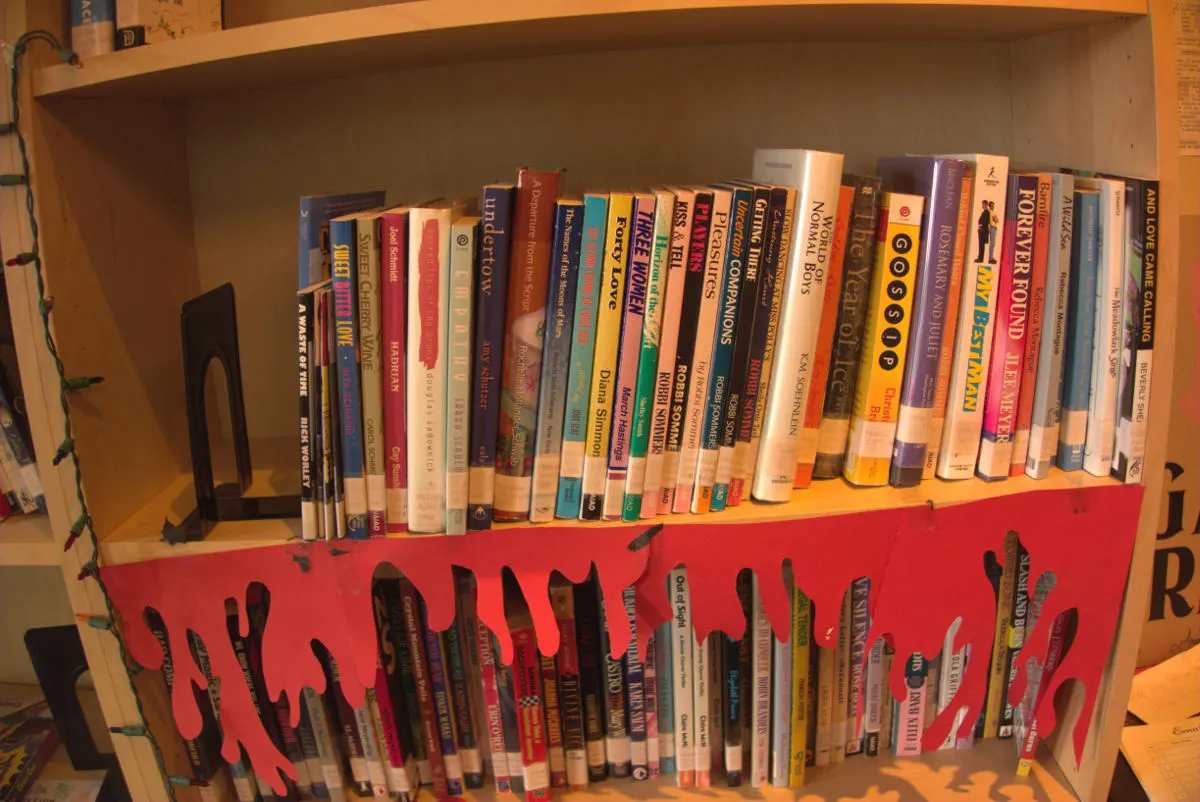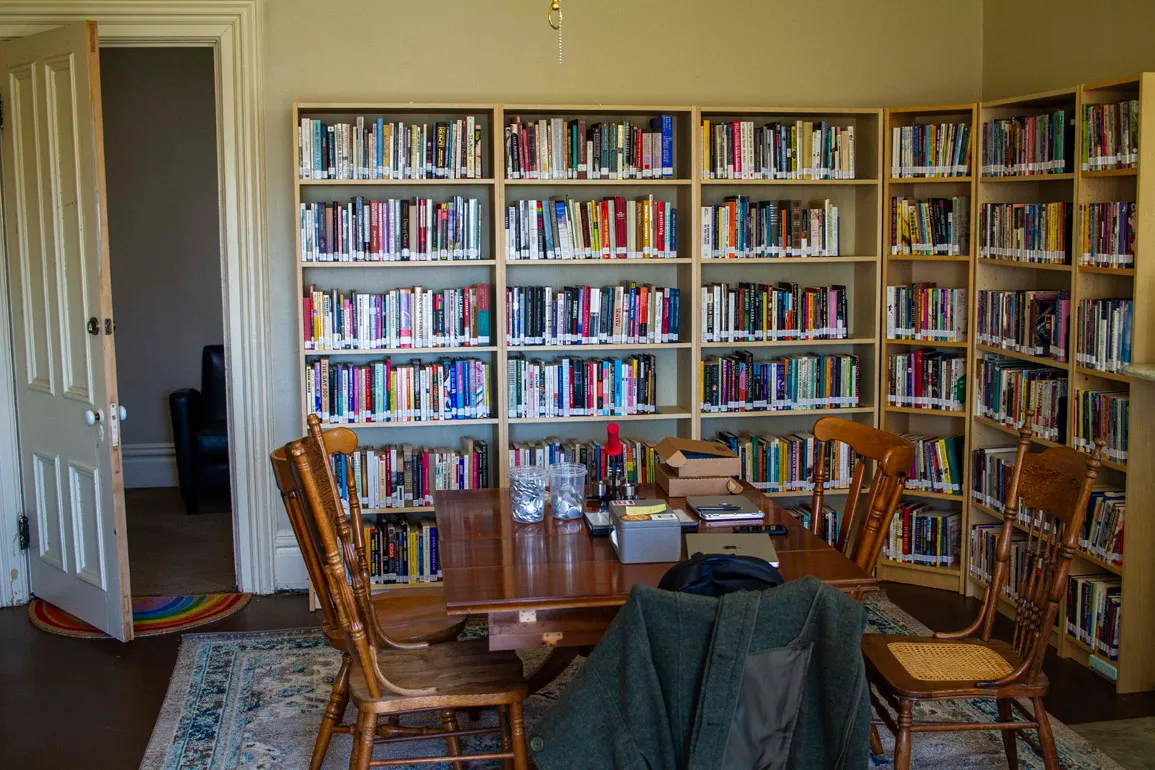This article was originally published in Little Village Magazine’s June 2024 issue.
My best friend Valentine will sometimes text me a picture of a page from his old journal. We’ve been friends a long time. Last fall he sent me a page, a beautiful letter — he still writes entries like the poets do, formally — in which he gushes about the sanctity of queerness, of our elders, of what a gift it is to have the community we have, the love we have, this way of existing that we share. He ends it with the elegant, cursive sentiment: “What a life. What a life!”
You know a person long enough they become your witness, your person’s notary. Valentine’s journal, almost by accident, has become our personal archive. In it, the evidence of a history we create both together and apart. It is memory. Time. A life, several.
Academically, I always associated archives with dust-covered libraries, old accounting books. I thought of dinosaurs. Dead things. The best of archival work is the very opposite. It is pulsing and vibrant and alive, which is the spirit that surrounds the “Creating with the Archives” exhibit in the Reading Room housed in Public Space One, in partnership with the LGBTQ Iowa Archives and Library (LIAL).
Dr. Elizabeth Rodriguez Fielder’s graduate lab course took a year to plan. As part of the Humanities for the Public Good program at the University of Iowa, the original idea is to form a partnership with an organization and, through the class, provide them with more hands. What that work looks like varies with each community partnership. For this course, for LIAL, that meant a team of highly skilled and creative students who would work on indexing, archiving and learning other important facets of library science. The culmination of the class was both a collectively made LIAL info-zine that was sent out to organizations across the world, along with individual student projects that utilized found materials from the archive.
Dr. Rodriguez Fielder“[Outreach is in part a journey of] getting more relational with each other,” both through the creation of art and participation in it.

LIAL is a nonprofit based in Iowa City that aims to create an archive of distinctly Iowan queer materials. The project is somewhat dually pronged into its brick-and mortar facility, a cute and quaint in-house library, and a much vaster collection of archived materials hidden somewhat ironically in a church basement downtown. The archives are vast and home to a wide variety: recipe books, letter exchanges, transmasc magazines, even medical texts — all of which were involved in the creation of this exhibit.
You’ll find the library in a small room on the second floor of the Close House mansion, a Pride flag draped over an otherwise unextraordinary door. The entire space is smaller than my living room and, at least for this month, is filled to the brim with contemporary reimaginings of archival materials from queer Iowa of yore. Upon entering, you face a striking textile piece. A circular canvas map hangs in the far corner, taking it up almost entirely. It is strewn with colorful embroidery illustrating where each class zine has been sent. Red threads connect Iowa City to bookstores in Europe, blue threads meander their way over to America’s West Coast archives, purple threads find queer centers in the Midwest and beyond. In the white space of the ocean there’s a squid, a unicorn, jellyfish. It’s DIY folk-punk fantasy world-building in the making.
Across the room there are clothing drawers hidden between bookshelves, marked with a cartoonish “18+” doodle. Opening the drawers, pushing past the clothes and packer, you find zines. 18+ indeed, as artist Kat Bonny borrows from LIAL’s now-rehomed vintage gay porn to capture instances of gender euphoria. A table in the middle of the room holds a dark sketchbook riddled with stickers — think mushrooms and rainbows and roller skates. On the cover is a pink note card held in place by neon yellow and pink tape, on it the words “GAY ART.” Artist Celeste Yvonne Howington has placed a bucket of markers directly beside it, encouraging a group creation of art and diary. You cannot walk through the door without wanting to touch everything. The exhibit is explosive, interactive and remarkably present.

When I spoke to Dr. Rodriguez Fielder, she stressed the importance of creativity as a form of outreach, especially through the “participatory objects and invitations” in the exhibit, which she imagines to “create memory out of the everyday.” It reminded me of the dichotomy encased in my journal with Valentine, the presentness of it combined with the archive as a history. It’s both. It’s living and dead. It’s with us.
Outreach, Dr. Rodriguez Fielder notes, is in part a journey of “getting more relational with each other” both through the creation of art and participation in it.
“That felt at the core of the queer community archive.” Visually, it flips the idea of outreach completely. “Can we do something like ‘in-reach’?” she questions. “Creating with the Archives” answers in a resounding yes.

I sat down at Andrea Schuster’s “LIAL’s Favorite Recipes,” a simple station with a box and a stack of blank recipe cards, the first of which was found in the archived cookbook Queer Earth Food by Clare Lagomarsino. I flipped through the filled-out cards, recognizing handwriting, mildly judging recipes, taking pictures to recreate some myself. It surprised me when I filled out a card, my family’s treasured spanakopita recipe, one of those old Greek secrets I’m prone to keeping. It’s my signature and it’s deeply personal, as all good food is. Some friends have asked me to teach them and I’ve gone as far as to show them somewhat incorrectly. Sue me.
So how to explain me writing — with almost elaborate detail — the best way to pick feta (don’t go cheap), the gentle nature of folding the filo (damp cloths and exaggerated gentility), the egg wash (sprinkled with flaky salt)?
There is something sacred about memory and presentness. Knowing that one will eventually always lead to the other. We’re all history sometime — it got to me. Good art makes you share the spanakopita. Good art makes you share everything.
